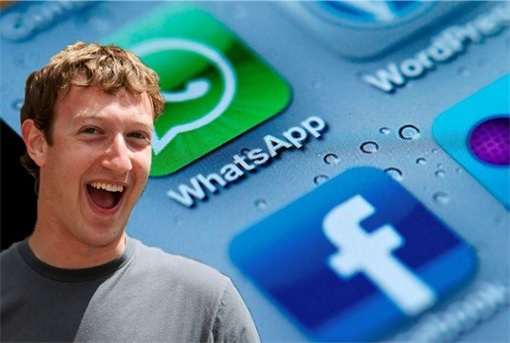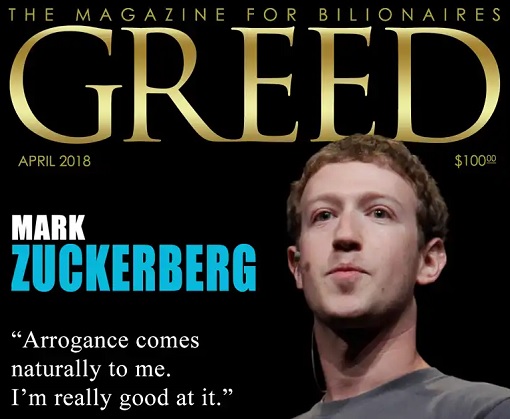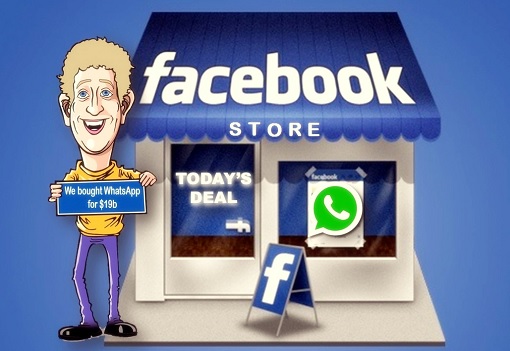Millions of WhatsApp users have retaliated, and Mark Zuckerberg’s team has responded. The Facebook-owned messaging service app has decided to delay its initial Feb 8 deadline to suspend the accounts of those who disagreed to comply with its new privacy policy. On Saturday (Jan 16), WhatsApp said “no one will have their account suspended or deleted on February 8, 2021”.
In its initial privacy policy update on Jan 5, WhatsApp issued an ultimatum to its 2 billion users – either accept its latest terms and conditions by Feb 8, or be unable to use the world’s most popular messaging service. Apparently, billionaire Zuckerberg had underestimated the backlash from users worldwide, forcing the plan to monetise WhatsApp to be postponed.
In a blog post, WhatsApp wrote – “We’ve heard from so many people how much confusion there is around our recent update. There’s been a lot of misinformation causing concern and we want to help everyone understand our principles and the facts.” It appears WhatsApp has not given up its plan, but merely trying to buy some time to do some damage control.

WhatsApp faces widespread condemnations following a new privacy notice that says users will have to allow Facebook and its subsidiaries collect WhatsApp data – including phone numbers and locations in addition to app logs, profile name, profile picture, IP address, status messages and whatnot. Users were furious as the new terms are “mandatory or compulsory”.
WhatsApp, claiming that it collects user information to be able to provide services and customize the experience for the user, says – “We may use the information we receive from them, and they may use the information we share with them, to help operate, provide, improve, understand, customize, support, and market our Services and their offerings, including the Facebook Company Products.”
The policy update raises concerns about how merchants using WhatsApp to chat with customers can share data with Facebook, which could then use the information for targeted advertisements. Facebook has been aiming to monetise WhatsApp by allowing businesses to contact clients via the platform, making it inevitable for the social media giant to centralise some data on its servers.

However, WhatsApp claims the following – “We can’t see your private messages or hear your calls, and neither can Facebook. We don’t keep logs of who everyone is messaging or calling. We can’t see your shared location and neither can Facebook.” That’s because, according to the company, message contents is encrypted end-to-end.
Users, of course, were neither impressed nor convinced with WhatsApp’s assurance. They looked for alternatives, including rival messaging apps Telegram and Signal. WhatsApp rival Telegram saw a huge spike of new users, breaching 500 million active users on January 13. The Dubai-based Telegram Messenger celebrates by sending a notification to all its users about its milestone.
Telegram founder Pavel Durov, known for his frequent criticism of WhatsApp’s approach to user privacy, even took the opportunity to mock WhatsApp – “People no longer want to exchange their privacy for free services. They no longer want to be held hostage by tech monopolies that seem to think they can get away with anything as long as their apps have a critical mass of users.”

WhatsApp’s intrusion into users’ private information in order to make more money from ads has also seen other rival messaging apps enjoy a boost in new users. Signal saw approximately 7.5 million installs globally through the Apple App Store and Google Play store between January 6 and January 10 alone – a boost of 43 times the number from the previous week.
Tesla and SpaceX CEO Elon Musk, the billionaire who experienced a brief stint as the richest person on the planet, gave Signal a boost with a tweet message – “Use Signal” – to his 41 million Twitter followers. A sudden spike in demand saw Signal reported last week that verification codes sent to users via text message to start using the app were delayed as it scrambled to add extra servers.
With the latest delay in enforcing its privacy policy, WhatsApp hopes to be able to educate its users, or at least to swing the perceptions that their data will be sold to the highest bidders. Claiming that the privacy updates caused “confusion”, WhatsApp’s now wants to give more time to people, hoping the users will have the chance to “gradually” review the policy “at their own pace”.

Zuckerberg’s potential cash cow app says the new business options will be made available on May 15, 2021. Essentially, existing WhatsApp users can continue to use the app until the new target date. While it’s too early to say whether the app will eventually bulldoze its way, Facebook has come under increasing pressure from regulators as it tries to integrate its services to generate more revenue.
Last November, The European Commission has fined Facebook €110 million for providing incorrect or misleading information during the Commission’s 2014 investigation under the EU Merger Regulation of Facebook’s acquisition of WhatsApp. Facebook was found to have had committed two separate infringements in the merger notification form.
When Facebook notified the acquisition of WhatsApp in 2014, it informed the Commission that it would be unable to establish a reliable automated matching between Facebook users’ accounts and WhatsApp users’ accounts. However, in August 2016, WhatsApp announced updates to its terms of service and privacy policy – including the possibility of linking WhatsApp users’ phone numbers with Facebook users’ identities.

Meanwhile, the federal and state regulators in the U.S. have accused Facebook of using its acquisitions of WhatsApp and Instagram to squelch competition. Last month, the Federal Trade Commission (FTC) filed antitrust lawsuits that aim to force the company to divest Facebook assets – including Instagram and WhatsApp. Last year, Facebook generated revenues of more than US$70 billion.
WhatsApp may insist, or would like people to think, that it was its confusing privacy policy that has created condemnations. In reality, however, the announcement to suspend for 3 months the controversial new terms of policy is to prevent adding pressure to the lawsuits Facebook currently faces. If WhatsApp also attracts lawsuits from users now, it would make matters worse.
Other Articles That May Interest You …
- Telegram Skyrockets To 500 Million Active Users Thanks To Dissatisfaction Over WhatsApp’s New Privacy Policy
- Sale Of TikTok Hits Roadblock – China Takes Control, Could Stop The U.S. From Owning Chinese AI Technology
- Trump’s Ban On WeChat Will Backfire On Apple – Chinese Users To Throw Away iPhones Without WeChat
- Here’s The Real Reasons Trump Bans TikTok – And It Has Nothing To Do With National Security Threat
- Ouch!! Apple Has Lost $452 Billion – That’s 3 Times Size Of McDonald’s Or The Entire Facebook
- Growth At Any Cost, Even If People Get Killed – Leaked Memo Exposed The Greed Of Facebook
- Adding Salt To Injury – As Facebook Losses $100 Billion, Cook Mocked Zuckerberg About Privacy
- Internet Crackdown!! – WhatsApp Being Blocked In China
- How Zuckerberg Stole WhatsApp While WeChat’s Boss Was Sick
- WhatsApp To Sell Your Phone No To Evil Zuckerberg – Here’s How To Stop It
- Here’s How 50 Engineers Manage 900 Million WhatsApp Users

|
|
January 18th, 2021 by financetwitter
|


|

|

|

|

|

|




























Comments
Add your comment now.
Leave a Reply